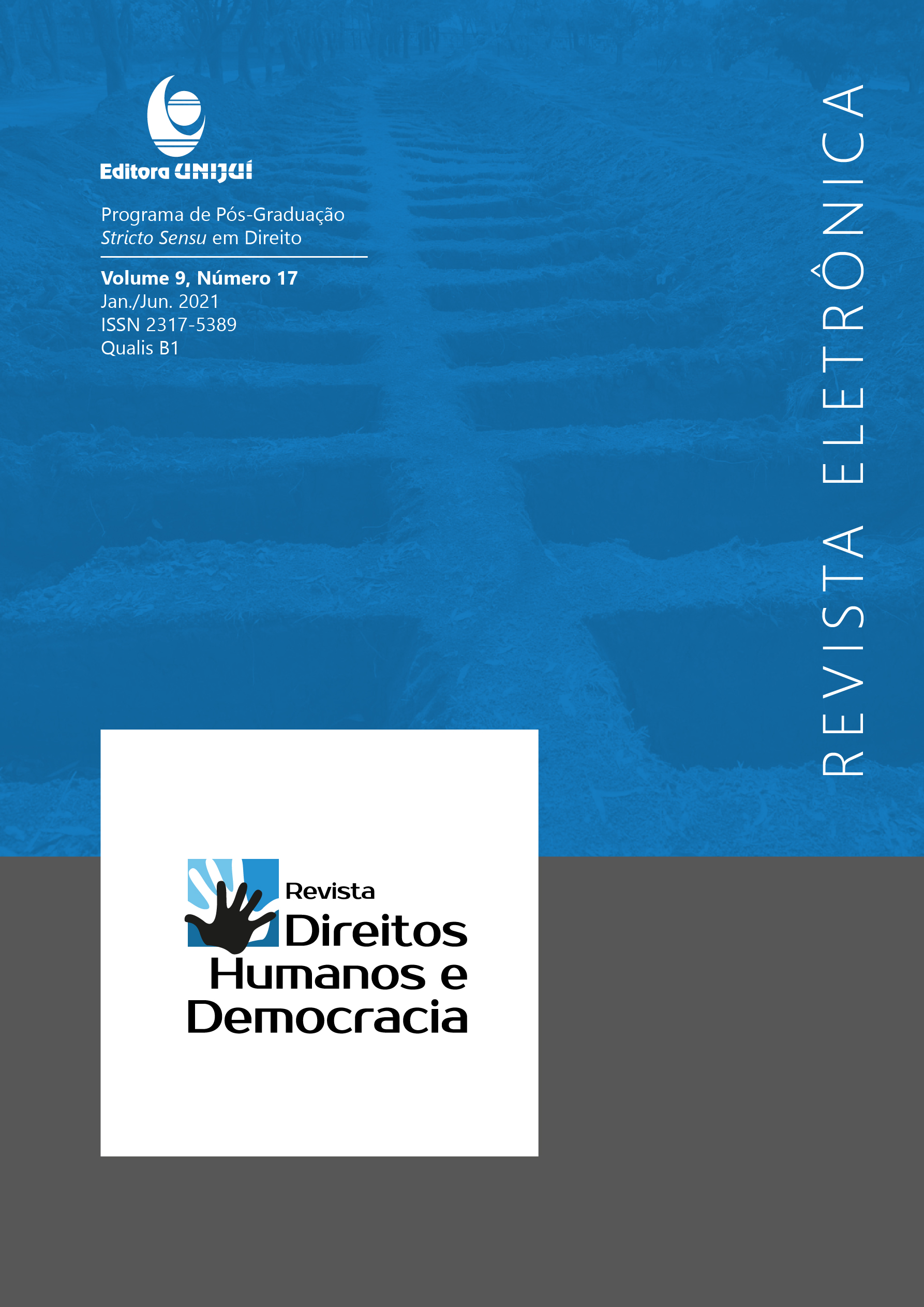ANÁLISE DO DEBATE PARLAMENTAR SOBRE O “INFANTICÍDIO” INDÍGENA
AN ANALYSIS OF THE PARLIAMENTARY DEBATE REGARDING THE INDIGENOUS “INFANTICIDE”
DOI:
https://doi.org/10.21527/2317-5389.2021.17.8941Keywords:
Human Rights, indigenous peoples, infanticide, Legislative Power, parliamentary debate.Abstract
This article aims to understand the debate regarding the practice known as indigenous "infanticide", focusing on the making of the Bill nº 1.057/2007, that creates ways to fight against its practice. To do so, we carried out a documentary research, seeking to put in evidence the connexions between the assumptions made, their factual basis and the changes performed at the bill. Lastly, we analyzed the results using the theories of Legisprudence (Wintgens) and of the Critical Theory of Human Rights (Herrera Flores, Costas Douzinas). The study concluded that the debate obliterated all the possibilities but the legislative way, ignored the lack of data capable of giving support to the bill and had an uncomplying stance that turned the effective participation of those affected by it harder.
Downloads
Published
How to Cite
Issue
Section
License
By publishing in the Revista Direitos Humanos e Democracia, authors agree to the following terms:
Articles are licensed under the Creative Commons Atribuição 4.0 Internacional (CC BY 4.0), which allows:
Share — copy and redistribute the material in any medium or format;
Adapt — remix, transform, and build upon the material for any purpose, including commercial use.
These permissions are irrevocable, provided the following terms are respected:
Attribution — authors must be properly credited, with a link to the license and indication of any modifications made;
No additional restrictions — no legal or technological measures may be applied that restrict the use permitted by the license.
Notices:
The license does not apply to elements in the public domain or covered by legal exceptions.
The license does not grant all rights required for specific uses (e.g., image rights, privacy, or moral rights).
The journal is not responsible for opinions expressed in the articles, which remain the sole responsibility of the authors. The Editor, with the support of the Editorial Committee, reserves the right to suggest or request modifications when necessary.
Only original scientific articles presenting research results of interest, not previously published or simultaneously submitted to another journal with the same purpose, will be accepted.
References to trademarks or specific products are intended solely for identification purposes and do not imply any promotional endorsement by the authors or the journal.
License Agreement: Authors retain copyright over their articles and grant the Revista Direitos Humanos e Democracia the right of first publication.













